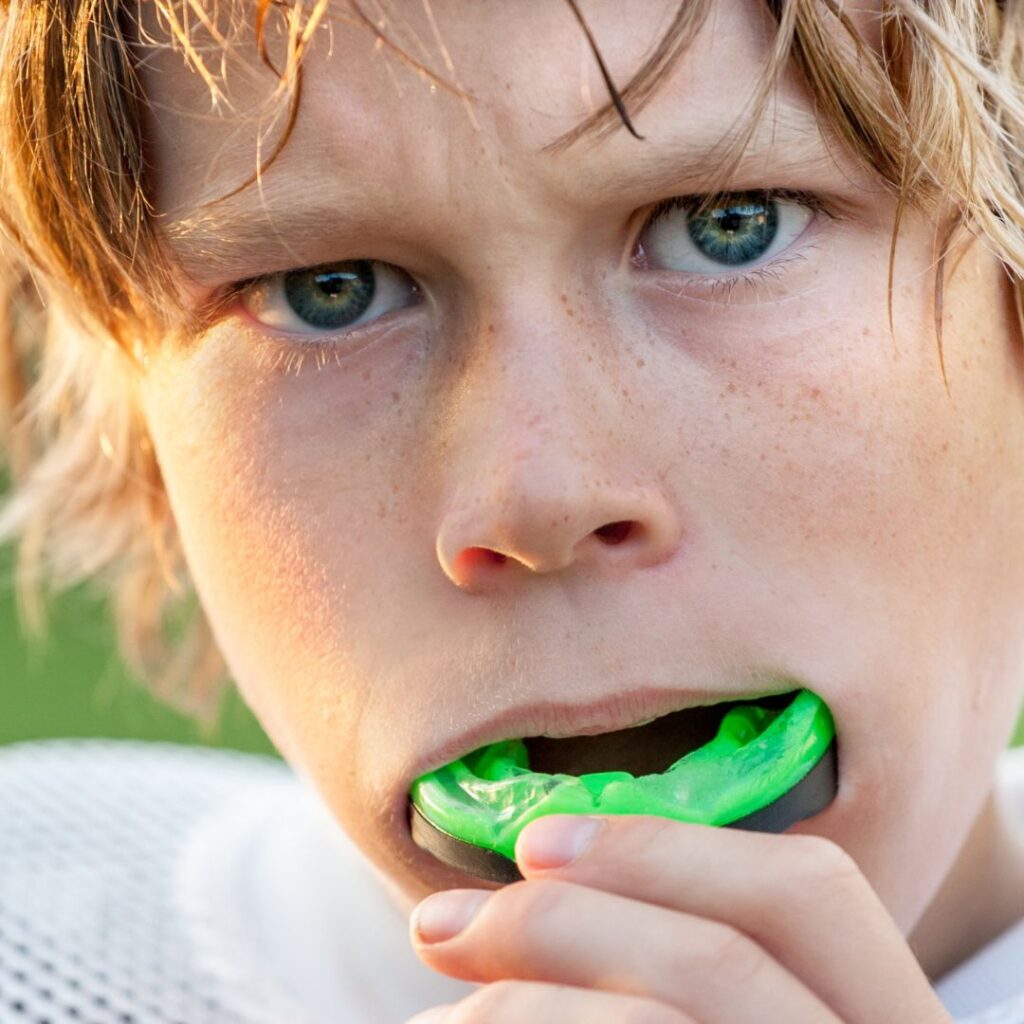Three Ways To Protect Your Child’s Teeth During Sports

Playing sports is a great way for your kids to get exercise and socialize with their peers. As much fun as a new sport may be for your little one, young athletes are at a higher risk for sports-related injuries. With fall sports in full swing, protecting your child’s teeth while they play sports, not just heavy contact sports, is important. The general cost of fixing a missing tooth can be more expensive than prevention. From head gear to safe play, here are a few ways you can protect your child’s teeth during sports.
Head Gear
Injuries on the court or field can be prevented by wearing a helmet. Helmets protect more than just a child’s head, especially one with a face guard. It can prevent your child from breaking or losing a tooth entirely. A face shield can also avoid damage to the delicate bones around the eyes, nose and even jaw. Hockey pucks, basketballs and racquetballs can cause severe facial damage at any age.
Even helmets without the additional front face guard can decrease the physical impact, which would normally cause children to bite down hard enough that they will chip their teeth.
Mouthguards
Children participating in sports such as swimming or soccer may need to wear other forms of facial protection, such as mouth guards. However, unlike football, baseball, and lacrosse, not all sports require a mouth guard, in which case a child would be more prone to accident or injury.
In fact, the National Youth Sports Safety Foundation (NYSSF) reported that a child is 60 times more likely to suffer a sports injury without a mouthguard. Yet, according to American Academy of Pediatric Dentistry, 67% of parents admitted that their children do not wear a mouthguard during organized sports. Last year, the NYSSF forecasted that more than 3 million teeth would be knocked out in youth sporting events. According to the U.S. Centers for Disease Control and Prevention, more than half of the 7 million sports and recreation related injuries that occur each year are sustained by children as young as 5 years old.
While sports equipment can be expensive, mouthguards continue to stay an affordable piece of protective equipment preventing a child from losing or chipping a tooth. Parents can find them at local sports stores where they usually come in one-size fits all. However, only buy those that have the American Dental Association (ADA) seal of acceptance. Mouthguards that don’t have this seal may not meet the dental profession’s standards for protecting teeth and lips. A custom mouth guard is typically recommended by pediatric dentists, which will better protect your child, and are still far less expensive than the alternative: a replacement tooth.